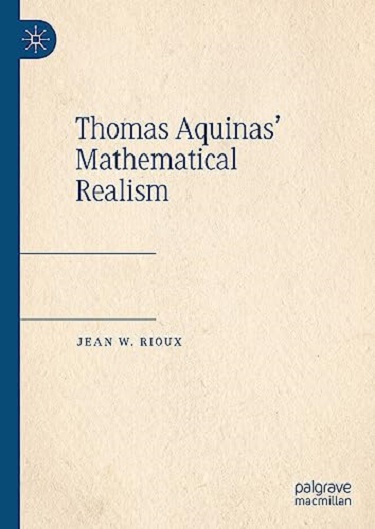- Home
-
About
 Fidelity & Excellence
Fidelity & ExcellenceThomas Aquinas College is unique among American colleges and universities, offering a faithfully Catholic education comprised entirely of the Great Books and classroom discussions.
-
A Liberating Education
 Truth Matters
Truth MattersTruth, and nothing less, sets men free; and because truth is both natural and supernatural, the College’s curriculum aims at both natural and divine wisdom.
-
A Catholic Life
 Under the Light of Faith
Under the Light of FaithThe intellectual tradition and moral teachings of the Catholic Church infuse the whole life of Thomas Aquinas College, illuminating the curriculum and the community alike.
-
Admission & Aid
 Is TAC Right for You?
Is TAC Right for You?Do you enjoy grappling with complex questions? Are you willing to engage in discussions about difficult concepts, with the truth as your ultimate goal?
-
Students & Parents
 Mind, Body & Spirit
Mind, Body & SpiritThere is always something to do at TAC — something worthwhile, something fulfilling, and something geared toward ever-greater spiritual and intellectual growth.
-
Alumni & Careers
 What Can You Do with a Liberal Education?
What Can You Do with a Liberal Education?Nothing speaks more to the versatility of the College’s academic program than the good that our alumni are doing throughout the Church and the world.
- Search
- Giving
Dr. Jean Rioux (’82) Pens Thomistic Assessment of Mathematics
 Students at Thomas Aquinas College study the basics of metaphysics and a great deal of mathematics — and some continue pondering both long after they graduate. One such graduate is Dr. Jean Rioux (’82), whose research at the intersection of the two disciplines has led to his new book, Thomas Aquinas’ Mathematical Realism, which examines math in light of Thomistic metaphysics.
Students at Thomas Aquinas College study the basics of metaphysics and a great deal of mathematics — and some continue pondering both long after they graduate. One such graduate is Dr. Jean Rioux (’82), whose research at the intersection of the two disciplines has led to his new book, Thomas Aquinas’ Mathematical Realism, which examines math in light of Thomistic metaphysics.
“I became interested in the philosophy of mathematics my senior year at TAC,” recalls Dr. Rioux, chair of the Philosophy Department at Benedictine College. “We were reading some of the modern mathematicians whose ways of conceiving quantity, as well as what mathematics really was, intrigued me.” Those conceptions diverged considerably from those that the founders of Western mathematics had developed, and the young student began to wonder what had caused the divergence.
Dr. Rioux’s wonder persisted into his graduate studies at the University of St. Thomas in Houston, Texas, where his dissertation director was well versed in the ‘analytic’ tradition of philosophy, which led the modern departure from ancient mathematics. At his advisor’s suggestion, the budding scholar unearthed the roots of this departure and its gradual descent into skepticism. “You had people encountering unsolvable problems trying to explain whether mathematics has a solid foundation and talking about a ‘crisis in foundations,’” says Dr. Rioux. “Once I started looking into it, I thought, ‘The moderns aren’t doing too good a job of this, even by their own admission!’”
While pondering the foundations of mathematics might seem like a luxury fit for the penthouse of an ivory tower, the debate has far more than academic implications. “Pope St. John Paul II was concerned about the place of reason in modern thought, because we have lost confidence in the capacity of reason to find any kind of certitude,” he says. Fired by the Holy Father’s concerns, Dr. Rioux realized that a fresh assessment of mathematics was in order, “because it’s where certitude is found first and foremost. If we can’t do it there, then nothing is left.”
 Dr. Rioux’s first attempt at such an assessment was his dissertation, “Aristotle, Aquinas, and the Foundations of Arithmetic,” which compared ancient and modern attitudes toward the science of numbers. Thomas Aquinas’ Mathematical Realism, however, takes the project to another level, considering mathematics as whole — both geometry and arithmetic, as well as related questions about algebra and calculus — from the all-encompassing perspective of Thomistic metaphysics.
Dr. Rioux’s first attempt at such an assessment was his dissertation, “Aristotle, Aquinas, and the Foundations of Arithmetic,” which compared ancient and modern attitudes toward the science of numbers. Thomas Aquinas’ Mathematical Realism, however, takes the project to another level, considering mathematics as whole — both geometry and arithmetic, as well as related questions about algebra and calculus — from the all-encompassing perspective of Thomistic metaphysics.
“What I conclude in the book is that there’s quite a bit of equivocation when people talk about mathematics,” says Dr. Rioux. In modern parlance, ‘mathematics’ often means little more than an effective calculating tool for scientists and engineers to use in understanding and changing the world. Rarely, however, does it mean what St. Thomas meant, namely, speculative reflection on real things disclosed through experience. This is an omission which the world would be wise to rectify.
“I have colleagues in the math department who are heartbroken over students who see math as merely a tool,” laments Dr. Rioux. “They have a sense that mathematics is good to know for its own sake, but their training has been so focused on the practical that they don’t make the distinction anymore. They don’t ask those deeper questions: Are we constructing something that follows rules which we have also given it, or are these things abstracted from the physical world?”
Dr. Rioux concurs with Aristotle and St. Thomas Aquinas that mathematics offers a road to a wider and deeper wisdom which penetrates the nature of things and leads first to philosophical, and ultimately to theological, contemplation. Those interested in following that road — or in debating whether that road leads to that destination at all — should pick up Thomas Aquinas’ Mathematical Realism.

